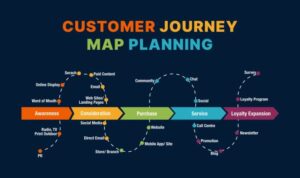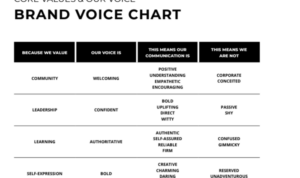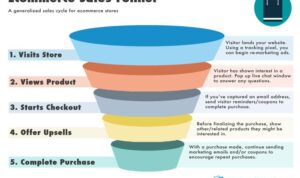Customer Service Excellence sets the stage for businesses to shine with top-notch service, paving the way for success and customer satisfaction. Get ready to dive into the world of exceptional customer service like never before.
Overview of Customer Service Excellence
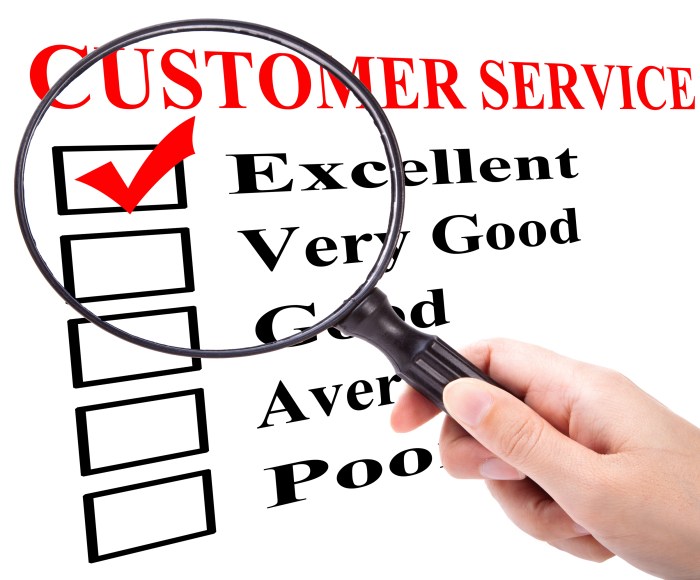
Customer service excellence in a business context refers to consistently meeting and exceeding customer expectations to provide a positive and memorable experience. It involves going above and beyond to ensure customer satisfaction and loyalty.
Importance of Delivering Excellent Customer Service
Delivering excellent customer service is crucial for businesses to retain existing customers, attract new ones, and build a positive reputation. It helps in creating customer loyalty, increasing customer lifetime value, and differentiating the business from competitors.
- Ensures customer retention and loyalty
- Builds a positive brand reputation
- Increases customer satisfaction and referrals
- Boosts revenue and profitability
Examples of Companies Known for Exceptional Customer Service
Companies known for their exceptional customer service include:
- Zappos: Known for its legendary customer service and focus on customer satisfaction.
- Amazon: Provides efficient and reliable customer service through various channels.
- Ritz-Carlton: Offers personalized and anticipatory service to exceed guest expectations.
Key Elements of Customer Service Excellence
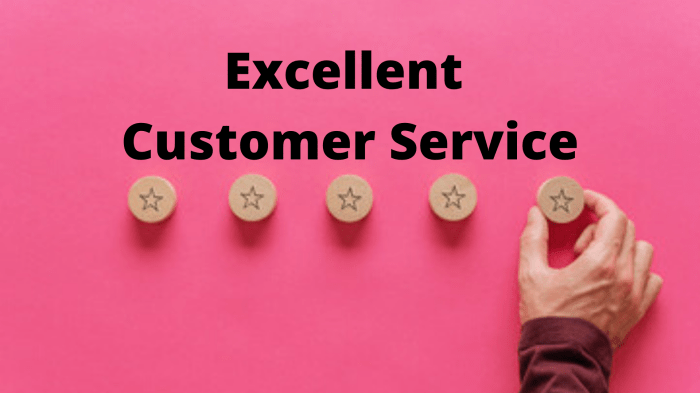
Customer service excellence is achieved through a combination of essential components that focus on meeting the needs and expectations of customers. Empathy, communication skills, and a customer-centric approach are key factors in providing outstanding customer service.
Empathy in Customer Service
Empathy is the ability to understand and share the feelings of others. In the context of customer service, empathy plays a crucial role in building rapport with customers, showing them that their concerns are valued and understood. By putting yourself in the customer’s shoes, you can better address their needs and provide personalized solutions that enhance their overall experience.
Communication Skills, Customer Service Excellence
Effective communication is vital in achieving customer service excellence. Clear and concise communication helps to ensure that customers receive accurate information, understand the solutions offered, and feel heard and valued. Active listening, asking relevant questions, and providing timely responses are all part of strong communication skills that can help build trust and satisfaction with customers.
Customer-Centric Approach
A customer-centric approach involves putting the customer at the center of all interactions and decisions. By prioritizing the needs and preferences of customers, businesses can create a positive and personalized experience that fosters loyalty and repeat business. Understanding the importance of customer satisfaction and striving to exceed expectations are fundamental aspects of a customer-centric approach to customer service.
Strategies for Achieving Customer Service Excellence
To excel in customer service, businesses can implement various strategies that focus on meeting and exceeding customer expectations. These strategies often involve creating a customer-centric culture, providing personalized interactions, and ensuring timely and effective solutions to customer queries and concerns.
Employee Training and Empowerment
Employee training and empowerment play a crucial role in achieving excellence in customer service. By providing comprehensive training programs, businesses can equip their employees with the necessary skills and knowledge to handle diverse customer needs. Empowered employees are more likely to make quick and informed decisions, leading to improved customer satisfaction and loyalty.
- Implementing regular training sessions to enhance product knowledge and communication skills.
- Encouraging employees to take ownership of customer issues and resolve them proactively.
- Empowering frontline staff to make decisions without unnecessary approvals, enabling quick problem resolution.
Personalized Customer Interactions
Personalized customer interactions are key to creating memorable experiences and building strong relationships with customers. Businesses can leverage customer data and insights to tailor their communication and service delivery according to individual preferences and needs.
- Utilizing customer relationship management (CRM) tools to track customer interactions and preferences.
- Sending personalized follow-up messages or offers based on past purchases or interactions.
- Training employees to address customers by name and anticipate their needs during interactions.
Innovative Service Solutions
Innovation in service delivery can set businesses apart and drive customer loyalty. By continuously seeking feedback, analyzing trends, and exploring new technologies, companies can develop creative solutions that address evolving customer needs and expectations.
- Introducing self-service options like chatbots or mobile apps for quick and convenient customer support.
- Offering flexible service packages or customization options to cater to diverse customer requirements.
- Partnering with technology providers to implement cutting-edge solutions for seamless customer experiences.
Measuring Customer Service Excellence
Measuring customer service excellence is crucial for businesses to gauge the effectiveness of their efforts in meeting customer needs and expectations.
Gathering Customer Feedback
One key way for businesses to measure the quality of their customer service is by gathering feedback directly from customers. This can be done through surveys, online reviews, comment cards, or even social media platforms.
- Feedback allows businesses to understand what aspects of their service are working well and what areas need improvement.
- By listening to customer feedback, businesses can make necessary adjustments to enhance the overall service experience.
- Continuous feedback helps in building stronger relationships with customers and improving brand loyalty.
Key Performance Indicators (KPIs)
Key performance indicators are essential metrics used by businesses to assess the effectiveness of their customer service efforts.
- Customer Satisfaction Score (CSAT): This metric measures the level of satisfaction customers have with the service received. It is usually based on surveys or feedback ratings.
- Net Promoter Score (NPS): NPS measures customer loyalty by asking customers how likely they are to recommend the business to others. It helps in assessing overall customer satisfaction and loyalty.
- First Contact Resolution (FCR): FCR measures the percentage of customer issues resolved on the first contact with customer service. A high FCR indicates efficient and effective service.
- Average Response Time: This KPI measures the average time taken for customer service representatives to respond to customer queries or issues. A quick response time is crucial for customer satisfaction.

